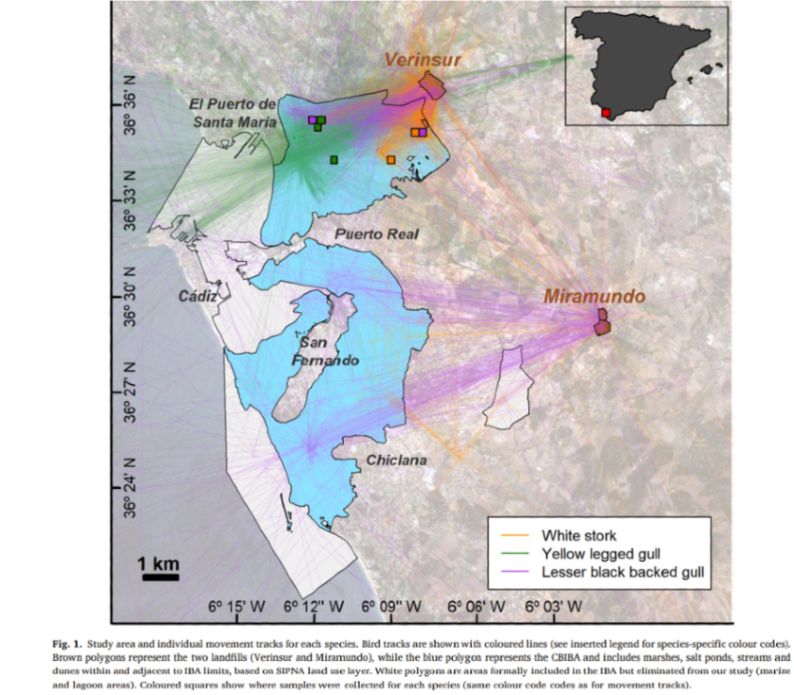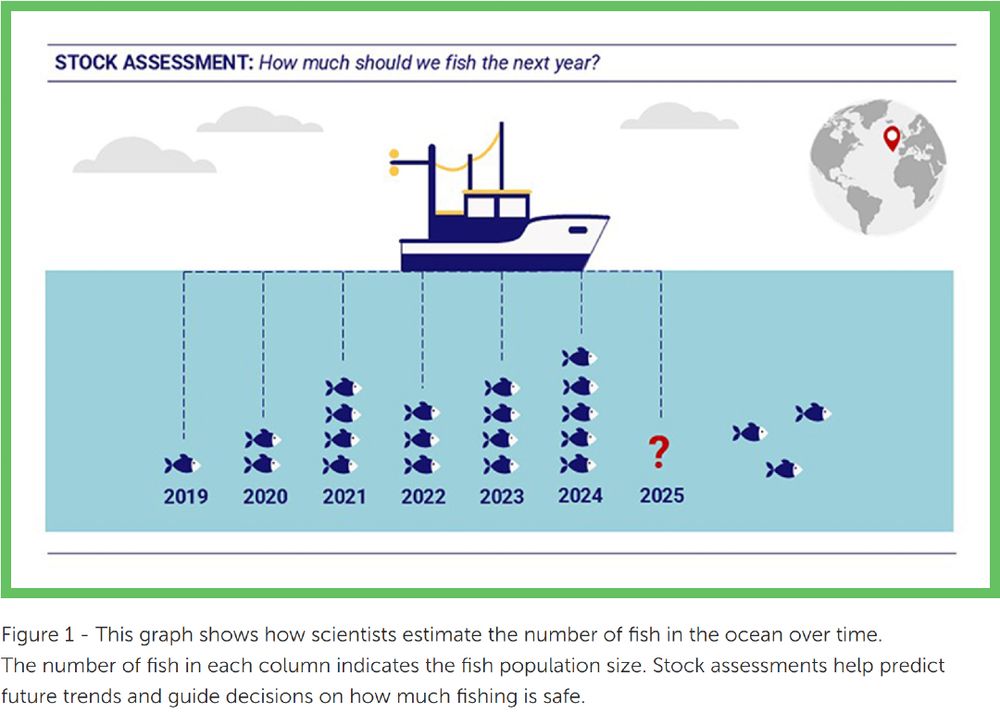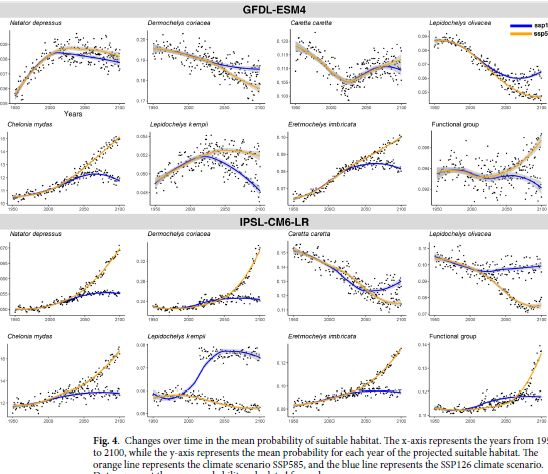
🔗http://imares.science
📅Dijous 4 de desembre |15h-18h
📍Barcelona
Uneix-te a la jornada “Pesca i consum sostenible de peix” i descobreix com cuidar el mar amb les teves decisions!
👉 Inscripcions: ajuntament.barcelona...
#ConsumResponsable
@miquelortega.bsky.social

📅Dijous 4 de desembre |15h-18h
📍Barcelona
Uneix-te a la jornada “Pesca i consum sostenible de peix” i descobreix com cuidar el mar amb les teves decisions!
👉 Inscripcions: ajuntament.barcelona...
#ConsumResponsable
@miquelortega.bsky.social
📍 Lesser black-backed gulls peak in winter
📍 Storks during migration
📍 Yellow-legged gulls year-round
Plastic hotspots shift with bird movements!
#PlasticBiovectors

📍 Lesser black-backed gulls peak in winter
📍 Storks during migration
📍 Yellow-legged gulls year-round
Plastic hotspots shift with bird movements!
#PlasticBiovectors
✅ All species carried plastics
✅ Storks: more microplastics
✅ Gulls: more films & larger fragments
Polyethylene & polypropylene dominated.
#PlasticBiovectors

✅ All species carried plastics
✅ Storks: more microplastics
✅ Gulls: more films & larger fragments
Polyethylene & polypropylene dominated.
#PlasticBiovectors
#PlasticBiovectors

#PlasticBiovectors
New study reveals how waterbirds transport plastic from landfills to wetlands in Cádiz Bay. 3 species compared: white storks, yellow-legged gulls & lesser black-backed gulls.
#PlasticBiovectors
🔗 https://short.do/V_erB3
@icmcsic.bsky.social
@victormartinvel.bsky.social

New study reveals how waterbirds transport plastic from landfills to wetlands in Cádiz Bay. 3 species compared: white storks, yellow-legged gulls & lesser black-backed gulls.
#PlasticBiovectors
🔗 https://short.do/V_erB3
@icmcsic.bsky.social
@victormartinvel.bsky.social
We shared insights on how climate change impacts the fishing sector and key adaptation measures. Proud to have @miquelortega.bsky.social bringing his expertise to the discussion.🌊
@icmcsic.bsky.social




We shared insights on how climate change impacts the fishing sector and key adaptation measures. Proud to have @miquelortega.bsky.social bringing his expertise to the discussion.🌊
@icmcsic.bsky.social
✅ Identifying distinct populations avoids mismanagement
✅ Supports region-specific strategies
✅ Protects adaptive genetic diversity
Genomics = smarter fisheries management.
#AnchovyGenomics

✅ Identifying distinct populations avoids mismanagement
✅ Supports region-specific strategies
✅ Protects adaptive genetic diversity
Genomics = smarter fisheries management.
#AnchovyGenomics
Nutrients, temperature🌡️, salinity & oxygen shape anchovy genetic variation.
These insights help predict responses to climate change.
#AnchovyGenomics

Nutrients, temperature🌡️, salinity & oxygen shape anchovy genetic variation.
These insights help predict responses to climate change.
#AnchovyGenomics
🔴 Atlantic–Alboran
🔵 Nort Western & Central Mediterranean
The Almeria–Oran front is a potential dispersal barrier for gene flow.
#AnchovyGenomics

🔴 Atlantic–Alboran
🔵 Nort Western & Central Mediterranean
The Almeria–Oran front is a potential dispersal barrier for gene flow.
#AnchovyGenomics
New study in Ecology & Evolution: Genomic tools uncover the genetic structure of European anchovy populations in the Western & Central Mediterranean. Key for sustainable fisheries! 🌊🐟
🔗https://onlinelibrary.wiley.com/doi/10.1002/ece3.72441
@icmcsic.bsky.social
@martacoll.bsky.social

New study in Ecology & Evolution: Genomic tools uncover the genetic structure of European anchovy populations in the Western & Central Mediterranean. Key for sustainable fisheries! 🌊🐟
🔗https://onlinelibrary.wiley.com/doi/10.1002/ece3.72441
@icmcsic.bsky.social
@martacoll.bsky.social
Math and science help governments decide catch limits and protect spawning areas. 🐠💙

Math and science help governments decide catch limits and protect spawning areas. 🐠💙
✅ How many fish are caught
✅ How many are seen in surveys
✅ How fast fish grow
Then they use computer models to predict the future.
#OceanMath

✅ How many fish are caught
✅ How many are seen in surveys
✅ How fast fish grow
Then they use computer models to predict the future.
#OceanMath
There are at least 20,000 fish species in the ocean, maybe twice as many! Counting them all is impossible, so scientists use clues and math to estimate populations.
#OceanMath

There are at least 20,000 fish species in the ocean, maybe twice as many! Counting them all is impossible, so scientists use clues and math to estimate populations.
#OceanMath
#LitterToSea

#LitterToSea
#LitterToSea

#LitterToSea
#LitterToSea

#LitterToSea


The @iMARES_group is ready for the ICM Open Day 🌊 with the activity “Adapting to Change”. Discover how Antarctic marine animals cope with changes in their environment! 🐧❄️🔬
#ICMOpenDay
@icmcsic.bsky.social
The @iMARES_group is ready for the ICM Open Day 🌊 with the activity “Adapting to Change”. Discover how Antarctic marine animals cope with changes in their environment! 🐧❄️🔬
#ICMOpenDay
@icmcsic.bsky.social
@icmcsic.bsky.social
@bsc-cns.bsky.social


@icmcsic.bsky.social
@bsc-cns.bsky.social
📖+2000 pages tracing fish retail in Catalonia.
Thanks to #METODOS, integrating local history into ecological & socio-economic analysis.
#Fisheries
🔗https://short.do/VvHiNZ
@icmcsic.bsky.social

📖+2000 pages tracing fish retail in Catalonia.
Thanks to #METODOS, integrating local history into ecological & socio-economic analysis.
#Fisheries
🔗https://short.do/VvHiNZ
@icmcsic.bsky.social
Invited for our contribution to projects like PCBio, providing data on seabird distribution in southern Spain. 🐦🌊
#SPAs #ZEPAS #MarineConservation
@icmcsic.bsky.social


Invited for our contribution to projects like PCBio, providing data on seabird distribution in southern Spain. 🐦🌊
#SPAs #ZEPAS #MarineConservation
@icmcsic.bsky.social
👏 Congrats to Alba Fuster & the @imares-group.bsky.social team for this impactful contribution!
#iMARES #GlobalSDMs #MarineConservation

👏 Congrats to Alba Fuster & the @imares-group.bsky.social team for this impactful contribution!
#iMARES #GlobalSDMs #MarineConservation
📊 Results show habitat shifts, gains & losses under SSP126 & SSP585 climate scenarios.
#ClimateImpact

📊 Results show habitat shifts, gains & losses under SSP126 & SSP585 climate scenarios.
#ClimateImpact
#SpeciesDistributionModels

#SpeciesDistributionModels
A key step towards understanding these species ecology

A key step towards understanding these species ecology

